Hanoi 17 years of infertility and 10 times of artificial insemination, Ms. Phuc did not think she could still have her first child when she was over 50.
One day in late August, Ms. Phuc, 55 years old, dressed simply, took her little girl to a hospital in Hanoi for a check-up. Many people mistook her for a grandmother and granddaughter. In fact, this three-year-old girl was the "sweet fruit" that Ms. Phuc had been waiting for for more than ten years.
She had been infertile for 17 years and had 10 artificial inseminations but still could not get pregnant. Most of her embryo transfers were successful, but the pregnancies only lasted one or two months before they failed. In 2018, she became pregnant with twins, but in April she suddenly had abdominal pain and bleeding and could not keep the pregnancy. At her old age, everyone advised her to adopt a child because pregnancy was dangerous. However, she always wished to have her own child.
In 2019, the couple went to the Post Office Hospital for artificial insemination (IVF). The woman's ovarian reserve index (AMH) was low, along with poor hormones, so the chance of pregnancy was slim. Not to mention, the elderly mother's pregnancy was dangerous to the health of both mother and child. She also had uterine torsion and had to undergo surgery to be able to get pregnant.
In October 2019, she did IVF, got 12 embryos, transferred two embryos into the uterus, and conceived one fetus. During the entire pregnancy, she almost "lived" in the hospital for monitoring. At the 35th week of pregnancy, she went to Hanoi Obstetrics Hospital for a check-up, had high blood pressure, so had to have an emergency cesarean section, and the baby girl was born on June 28, 2020.
According to the World Health Organization (WHO), the average age of menopause for women is 51. Menopause also puts an end to a woman's ability to reproduce with her own eggs. In fact, it is very rare for a woman to conceive within 10 years before menopause, because by the age of 40, about 75% of all eggs are chromosomally abnormal, reducing the chance of conception and increasing the risk of miscarriage.
In Vietnam, most pregnancies over 50 years old are due to assisted reproductive intervention. Among them, a 61-year-old woman in Hanoi is the oldest case, pregnant through in vitro fertilization using a donor egg and her husband's sperm, giving birth to a baby girl in 2018 weighing 2.6 kg. Another pregnant woman, 60 years old, in Bac Giang, gave birth for the third time, also through IVF. Another woman gave birth to a son at the age of 58, two years after menopause, having to borrow another person's egg for IVF.
However, there are many cases of people over 50 getting pregnant naturally without knowing it, but there are no statistics. In April, Hospital 354 in Hanoi also successfully delivered a 51-year-old woman from Bac Kan, who already had a grandchild. This pregnant woman felt something unusual in her belly, a feeling of "movement", went to the doctor and discovered that the fetus was in the 22nd week.
In July, Dr. Nguyen Trung Dao, Department of Obstetrics and Gynecology, Hanoi Obstetrics and Gynecology Hospital, performed a cesarean section for a 50-year-old pregnant woman who had a grandchild. The pregnant woman became pregnant naturally, and the baby boy weighed 3.6 kg. The doctor has successfully delivered natural pregnancies for women aged 47-48, but it is very rare for women over 50. "After the age of 50, the ovaries have decreased significantly, and there are almost no eggs left to carry a pregnancy," Dr. Dao said, adding that age combined with poor egg quality puts the fetus at high risk of malformations, and a difficult pregnancy can easily lead to miscarriage, stillbirth, premature birth, low birth weight, and slow fetal growth.
Statistics show that every year in Vietnam, nearly 1.5 million children are born, of which more than 40,000 have congenital malformations, equivalent to one child born with a malformation every 13 minutes. Of these, about 1,000-1,500 children have neural tube defects, 300-400 children have hypothyroidism, 15,000-30,000 children have G6PD deficiency and about 2,200 children have thalassemia... Congenital malformations are the cause of more than 1,700 infant deaths each year.
Some babies with Down syndrome and mild to moderate neural tube defects can be born and lead normal lives, although they may have developmental, physical, or cognitive disabilities. However, half of babies with anencephaly do not survive after birth; the other half die within hours or days. Chromosomal abnormalities such as trisomy 13 or trisomy 18 can shorten a child's life expectancy; 90 percent of babies with either condition do not survive past one year of age and often have lifelong health problems and medical interventions.
All of the above problems of the child are related to the mother's health condition before and during pregnancy, in which the mother's age is very important. In the above cases, the doctor advises to terminate the pregnancy because the birth of a child is not only a disadvantage and pain for the baby, but also a burden for the family and society.
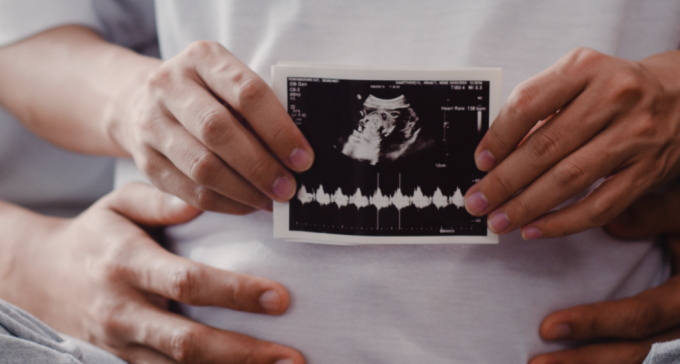
Pregnancy after 35 years old puts mothers at risk of pregnancy complications, and children are more likely to be malnourished and underweight. Photo: According to Health
Sharing the same opinion, Dr. Phan Chi Thanh, Department of Examination, Central Obstetrics Hospital said that the golden period in the reproductive age of women is 20-25 years old. This is the period when the ovaries develop optimally, with the least abnormalities.
Pregnancy after the age of 35 can be difficult and even life-threatening for both mother and baby. Older women often have more medical problems than younger women, such as cardiovascular disease and high blood pressure, which can lead to the risk of preeclampsia. The risk of diabetes or gestational diabetes also increases with age, directly threatening the mother's life. "Pregnancy makes the mother's underlying medical conditions worse, increasing the risk of complications during pregnancy," the doctor said.
Pregnant women of older age have a higher risk of having a fetus that is smaller than its gestational age, malnourished children, underweight children, premature birth, fetal malformations, and miscarriage than younger mothers.
Doctors recommend that women over 35 should have a health check before planning to get pregnant. If they are not in good health, they should not try to get pregnant. Pregnant women must be screened for abnormalities and closely monitored throughout the pregnancy. Develop a scientific diet with a variety of foods to increase the mother's resistance as well as the development of the fetus.
If pregnant during pre-menopause, pregnant women must strictly follow the instructions of doctors to screen for risk factors for both mother and baby. In case of infertility, doctors will advise the family on the procedure and difficulties of pregnancy.
Couples should have premarital check-ups to check their fertility and receive treatment according to the doctor's instructions to ensure safety before pregnancy.
Thuy An
*Character names have been changed
Source link



![[Photo] Visiting Cu Chi Tunnels - a heroic underground feat](https://vstatic.vietnam.vn/vietnam/resource/IMAGE/2025/4/8/06cb489403514b878768dd7262daba0b)










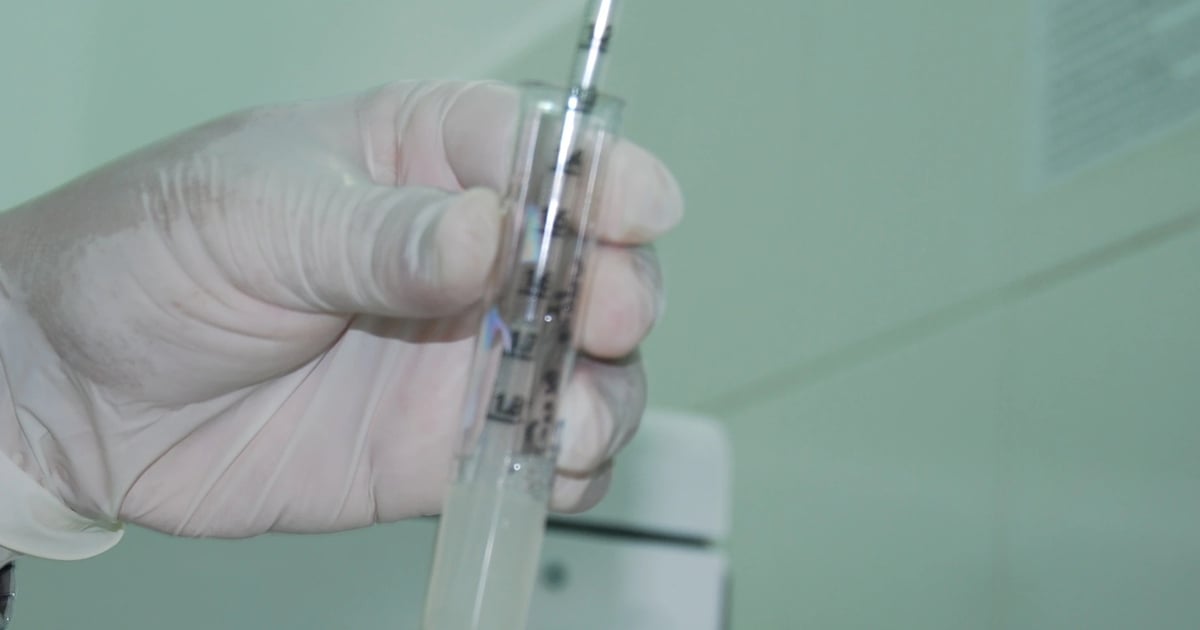

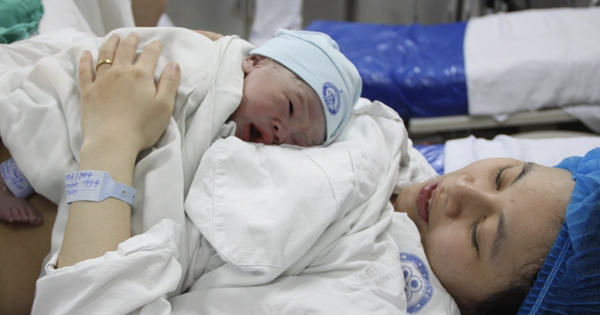


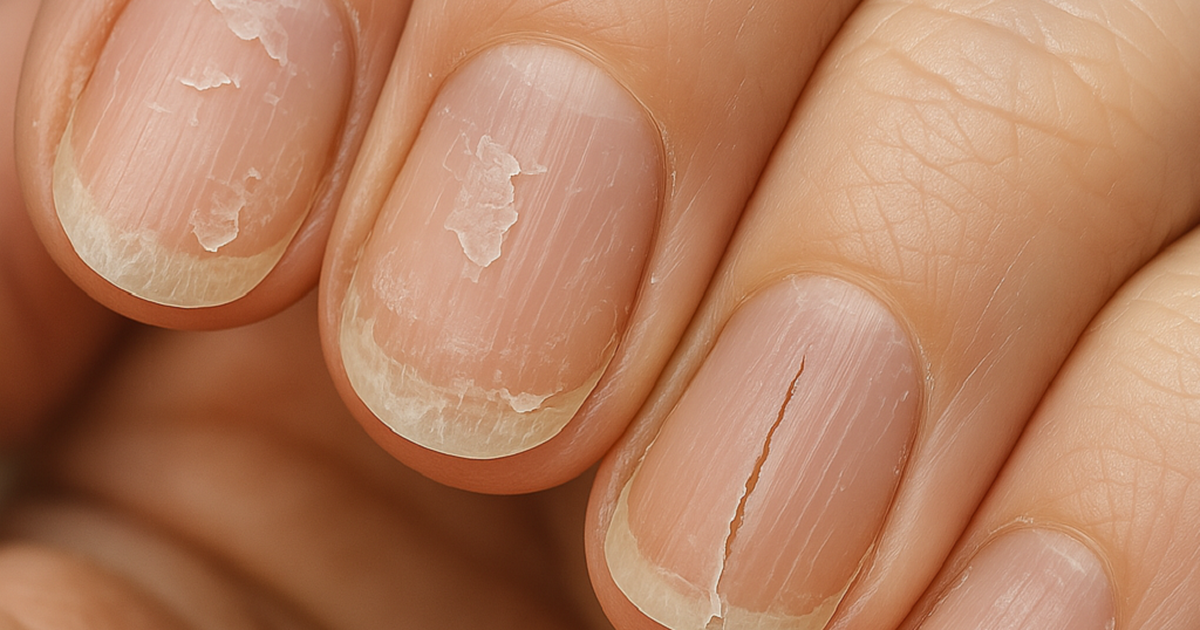

























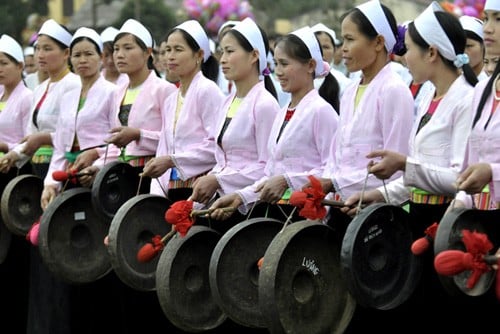
















































Comment (0)